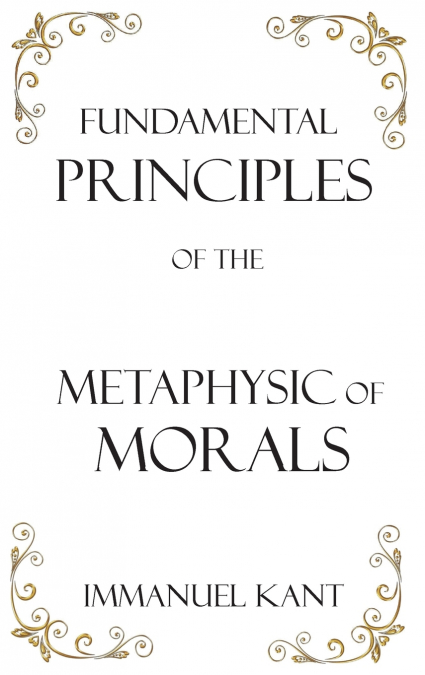
Immanuel Kant / Thomas Kingsmill Abbott
 Donde los libros
Donde los libros
 Librería 7artes
Librería 7artes
 Librería Elías (Asturias)
Librería Elías (Asturias)
 Librería Kolima (Madrid)
Librería Kolima (Madrid)
 Librería Proteo (Málaga)
Librería Proteo (Málaga)
Kant conceives his investigation as a work of foundational ethics-one that clears the ground for future research by explaining the core concepts and principles of moral theory and showing that they are normative for rational agents. Kant conceives his investigation as a work of foundational ethics—one that clears the ground for future research by explaining the core concepts and principles of moral theory and showing that they are normative for rational agents. Kant aspires to nothing less than this: to lay bare the fundamental principle of morality and show that it applies to us. In the text, Kant provides a groundbreaking argument that the rightness of an action is determined by the character of the principle that a person chooses to act upon. Kant thus stands in stark contrast to the moral sense theories and teleological moral theories that dominated moral philosophy at the time he was writing. Central to the work is the role of what Kant refers to as the categorical imperative, the concept that one must act only according to that precept which he or she would will to become a universal law.